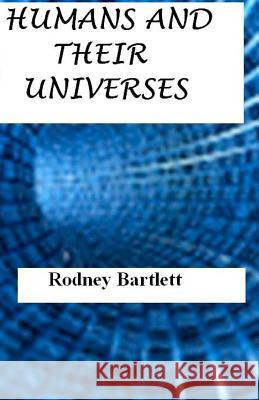Humans and their Universes » książka
Humans and their Universes
ISBN-13: 9781456465452 / Angielski / Miękka / 2010 / 62 str.
According to this brilliant or nonsensical (depends who's reading it) summary and essay, many of the present scientific mysteries become explicable. And this new science reaches into areas once reserved for religion and philosophy. While the conclusions are unbelievably fantastic by today's standards (we could travel to any point in the universe, or in time, instantly - we could achieve physics' holy grail of cosmic unification, and unify the large scale universe with small scale quantum mechanics - we could see eternal health for everyone who ever lived - and proper understanding of unification would not only show that a being called God must exist but humans would be unified with that God), I don't think the steps taken to arrive at those conclusions are irrational at all. They have their foundation in quantum mechanics, Einstein's Relativity, a recent demonstration in electrical engineering at Yale University and, of course, the inspirational work of Professor Stephen Hawking. Yes, I'm writing about science AND religion - my book has its beginnings in a cellular automaton (in mathematics and computer science, a collection of cells on a grid that evolves through a number of discrete time steps according to a set of rules based on the states of neighbouring cells) and grew into a belief that the universe has an electronic foundation. I've always been far more curious about the distant future than the present, and this is what my curiosity has revealed to me. Its conclusions are absolutely incredible at times ... which is why I felt the need to spend years (decades, actually) writing a long, detailed article explaining those conclusions, and making my article as perfect as my limited abilities permit. And I have the feeling that the distant future I've been thinking about is not so distant after all. It might be possible for much of the technology mentioned here to reach fruition in this century, or in the 22nd/23rd century. In the next 50 years, science could not only make the visions shown to us by Star Trek come true but it could surpass those visions, unimaginably by today's standards. If we can cast aside our emotional attachments to life as we know it, all this might happen within 50 years. If we cannot cast aside our attachments, we'll call the following "nonsense" and might have to wait hundreds of years to see it come true. I'll first summarise the steps leading up to (and beyond) exploration of all space-time then write a detailed essay showing how those paragraphs are consistent with the plausible nature of the universe and are therefore not science fiction.
Zawartość książki może nie spełniać oczekiwań – reklamacje nie obejmują treści, która mogła nie być redakcyjnie ani merytorycznie opracowana.











